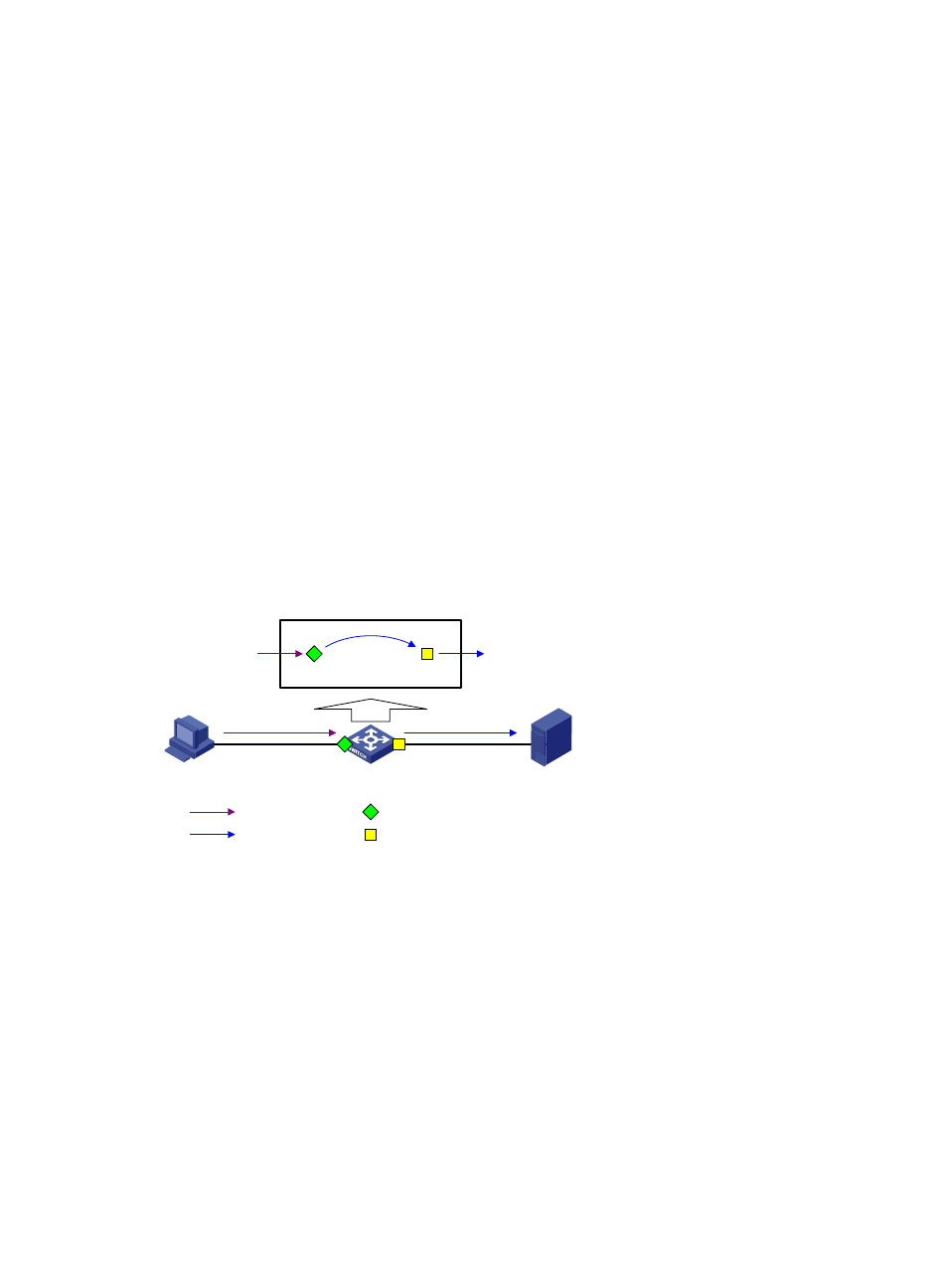Reflector port, egress port, and remote probe vlan, Port mirroring classification and implementation, Local port mirroring – H3C Technologies H3C WX5500E Series Access Controllers User Manual
Page 88: Remote port mirroring, Port mirroring classification, And implementation

80
Reflector port, egress port, and remote probe VLAN
The reflector port, remote probe VLAN, and egress port are used for Layer 2 remote port mirroring.
The reflector port is used to enable local mirroring to support multiple monitor ports.
The remote probe VLAN specially transmits mirrored packets to the destination device. Both the reflector
port and egress port reside on a source device and send mirrored packets to the remote probe VLAN.
The egress port must belong to the remote probe VLAN, but the reflector port may not. For more
information about the reflector port, egress port, remote probe VLAN, and Layer 2 remote port mirroring,
see "
Port mirroring classification and implementation
Port mirroring classification and implementation
Depending on whether the mirroring source and the mirroring destination are on the same device, port
mirroring is local or remote.
Local port mirroring
In local port mirroring, the mirroring source and mirroring destination are on the same device, and the
source device is directly connected to the data monitoring device and can act as the destination device
to forward mirrored packets to the data monitoring device. A mirroring group that contains the mirroring
source and the mirroring destination on the device is called a "local mirroring group."
Figure 31 Local port mirroring implementation
As shown in
, configure local port mirroring to copy inbound packets on the source port
GigabitEthernet 1/0/1 to the monitor port GigabitEthernet 1/0/2, which then forwards the packets to
the data monitoring device for analysis.
Remote port mirroring
In remote port mirroring, the source device is not directly connected to the data monitoring device but
copies mirrored packets to the destination device, which forwards them to the data monitoring device.
The mirroring source and the mirroring destination are on different devices and in different mirroring
groups. The mirroring group containing the mirroring source or the mirroring destination is called a
"remote source group" or "remote destination group", respectively. The devices between the source
devices and destination device are intermediate devices.
The WX5540E switching engine supports Layer 2 remote port mirroring. In Layer 2 remote port mirroring,
the mirroring source and the mirroring destination are on different devices on one Layer 2 network.
Host
GE1/0/1
Data monitoring device
GE1/0/1
Mirroring process in the device
Source port
Destination port
GE1/0/2
GE1/0/2
Original packets
Device
Mirrored packets
